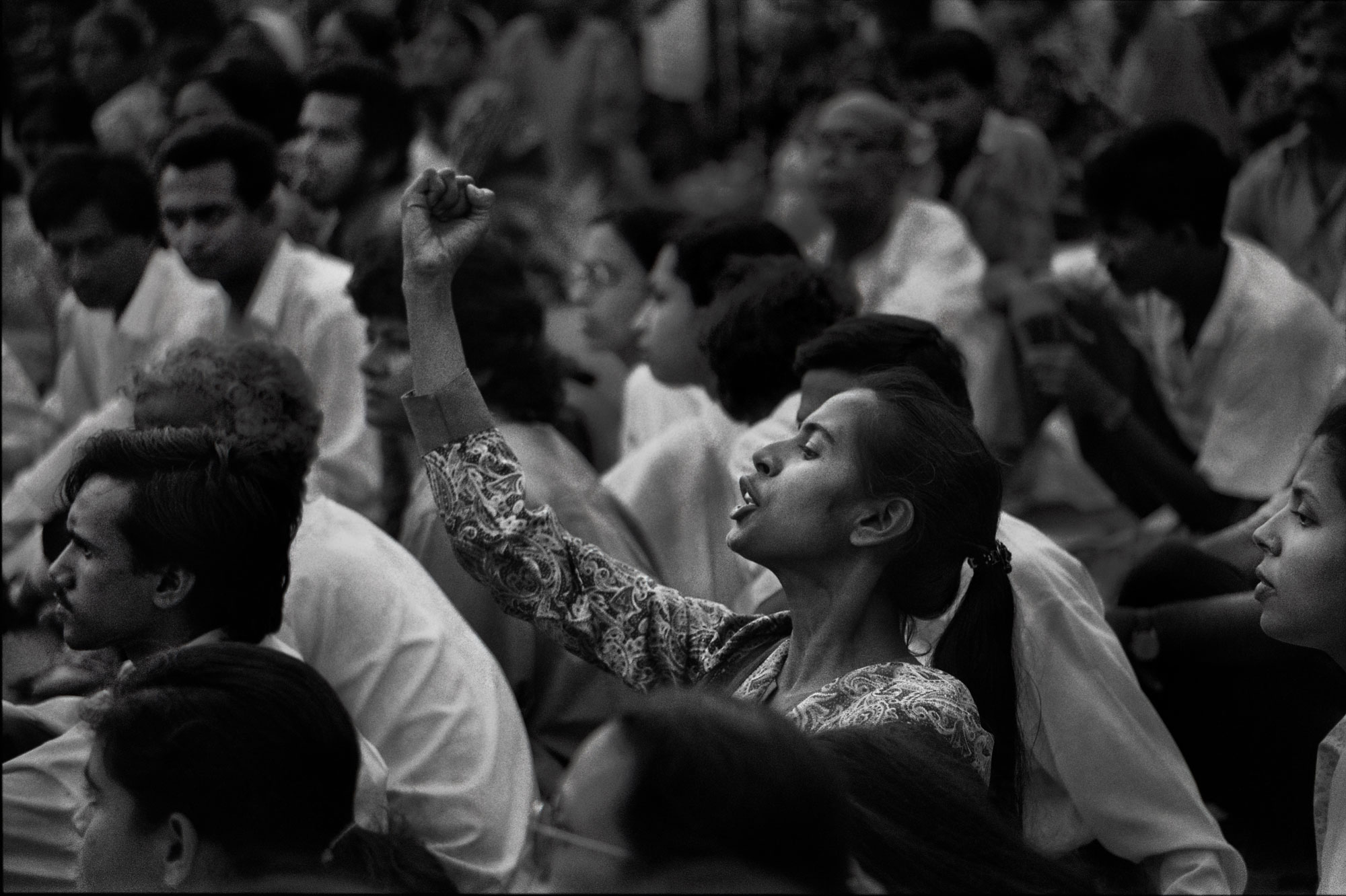
Shahidul Alam, the Bangladeshi photographer, writer, and activist who was jailed last year for speaking out against the ruling party of his home country, is getting his first ever US retrospective this fall.
Forty images spanning four decades of the artist’s career will be on display in “Shahidul Alam: Truth to Power” at the Rubin Museum of Art in New York. The timely show is set to open November 8, 2019—nearly one year after Alam’s release from a Bangladeshi jail. It will be the last in the museum’s yearlong series of themed exhibitions, “Power: Within and Between Us.”
Alam has had a long, influential career as a photographer and community organizer. He has shown his landscapes, portraits, and documentary work around the world, scooping up a number of awards. He is also a central figure in the Bangladeshi photography community: He founded a photo agency and gallery (the Drik Picture Library and Photo Agency), a successful photography school (the Pathshala South Asian Media Institute), and the first photo festival (the Chobi Mela Photography Festival), among other institutions.
But it was last year that he became a truly international figure and a symbol of free speech in the “majority world”—a phrase he himself coined to replace “third world” and its inherently negative connotations.
Shahidul Alam reacts as he is released from Dhaka Central Jail. Photo by Suman Paul/AFP/Getty Images.
The trouble began on August 5, when the artist appeared on Al Jazeera to discuss the protests mounted in response to the deaths of two high school students hit by a bus in Bangladesh’s capital city, Dhaka. Alam criticized the government’s violent reaction to the protests and placed these actions in a larger context of official wrongdoing.
“The looting of banks, the gagging of the media… the extra-judicial killings, the disappearances, the need to give protection money at all levels, bribery at all levels, corruption in education,” he said in the interview. “It is a never-ending list.”
Within hours after the interview, Alam was detained by local authorities and placed in jail, while allegedly being brutalized in the process. He remained there for more than three months while artists, activists, and humanitarian organizations the world over rallied in support of his case. He was finally released on November 20, 2018. In December, he was named one of TIME magazine’s People of the Year.
“Photographic imagery in South Asia has become an effective means for the underrepresented to claim voice and political presence,” says Beth Citron, the Rubin’s Curator of Modern and Contemporary Art, in a statement. “Alam is masterful at using images to tell stories and shine a light on injustices and inequities.”
Shahidul Alam, Noor Hossain, Dhaka (1990). Courtesy of Drik.
Citron is organizing the exhibition in close collaboration with the artist.
“In a time when free speech and expression is challenged in Bangladesh and across the world, Shahidul Alam’s lifelong work reveals the power of truth and voice in effecting change,” Citron says. “As shown by the global support for Alam across the art world, literary sphere, scholarly community, and humanitarian organizations during his recent period of incarceration in Dhaka, Shahidul Alam’s eminence cuts across fields.”
“Shahidul Alam: Truth to Power” will be on view at the Rubin Museum of Art from November 8, 2019 through May 4, 2020.